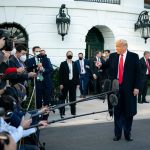It seems like some people in politics have a knack for making grand plans without really understanding the basics. Take, for instance, the interesting scene that played out when someone with quite a platform was quizzed on the population of Iran. Now, normally, you’d expect someone pushing for big changes in a country to know a little more about it, right? But in this case, the quizmaster wasn’t too impressed with the lack of knowledge. The question of Iran’s population seemed simple enough, even if it’s just a trivia tidbit to some. But if you’re making calls on what happens next in international affairs, maybe knowing a bit about the place is a good idea.
The back-and-forth continued with questions about the ethnic mix of Iran. Once again, the answers didn’t quite hit the mark. The idea here was that knowing the fabric of a country is crucial when you’re suggesting drastic actions like regime change. As history has shown, interventions without a solid grasp of the local dynamics can lead to chaos. There was mention of past mistakes in places like Afghanistan and Iraq, where assumptions were made that didn’t exactly pan out. These scenarios are like complex puzzles, and missing pieces might not seem important until the whole structure collapses.
So, why does the population of Iran matter, you ask? Well, it’s not just about numbers. It reflects an awareness of what’s at stake and how plans might affect millions of lives. It’s a reminder of past interventions where things didn’t go as planned, like in Afghanistan and Iraq. There, the initial plans were full of confidence but led to unintended consequences, such as the spread of extremist groups and mass migration crises. These actions rippled across continents, changing lives and landscapes from the Middle East to Europe.
Now, talking about the real-world implications, when you discuss potential military actions, it’s crucial to contemplate the aftermath. Imagine millions of people suddenly uprooted, thrust into a struggle for survival, or scattered across the globe. When policymakers don’t think these steps through, it’s ordinary people who end up bearing the brunt. There was a suggestion that after such upheaval, those fleeing might end up in Western countries. We’ve seen this before, and it often brings complex challenges, including the need for integration and accommodation in countries that might not have asked for it.
So, when the comedic quiz turns serious, it’s about more than just knowing numbers for a trivia night. It’s about understanding the broader implications of geopolitical decisions. Leaders’ grasp on the details can pave the way for better decisions, with clearer foresight into what happens after the dust settles. It’s a lesson learned from history, repeated for those paying attention, and maybe it’s something that could guide us through the foggy territory of foreign policy.




